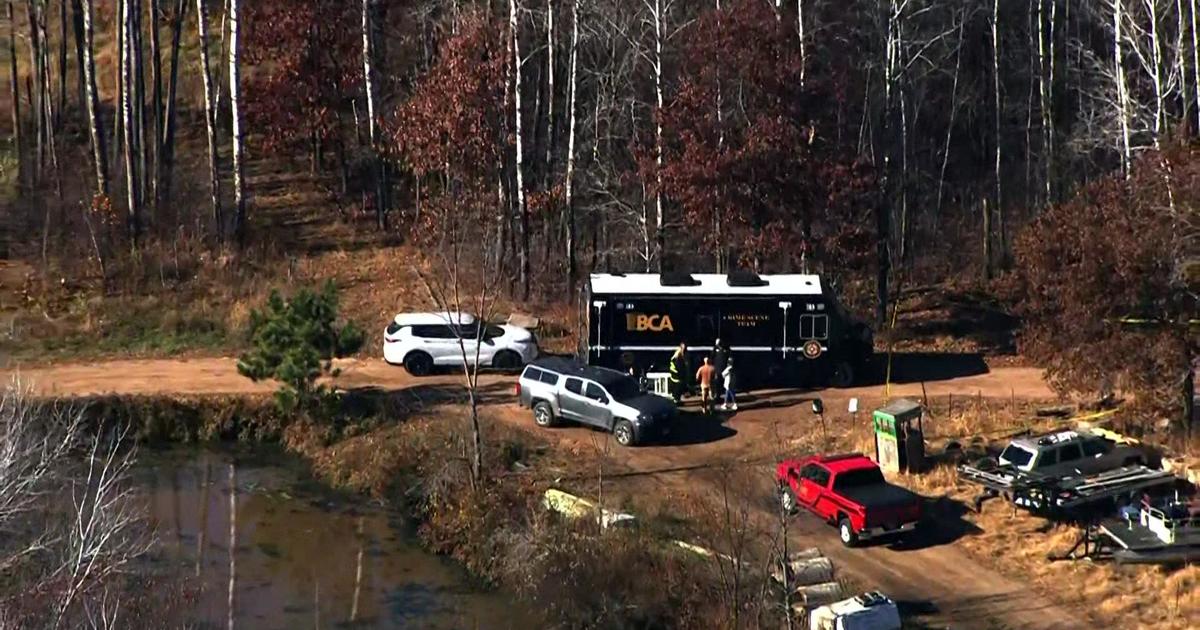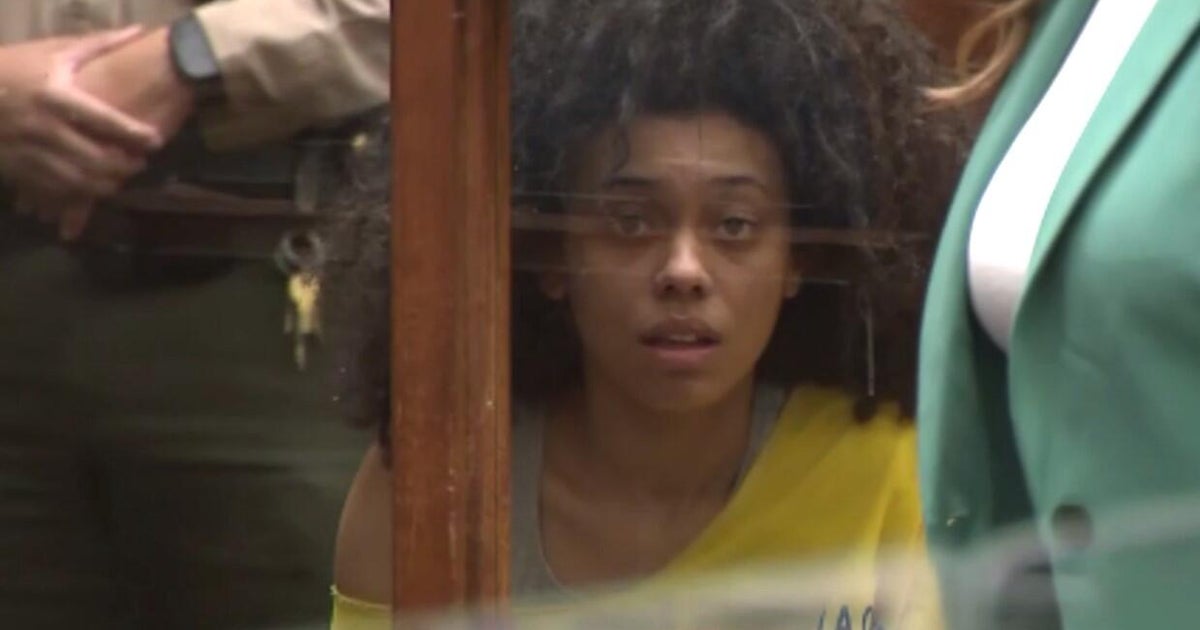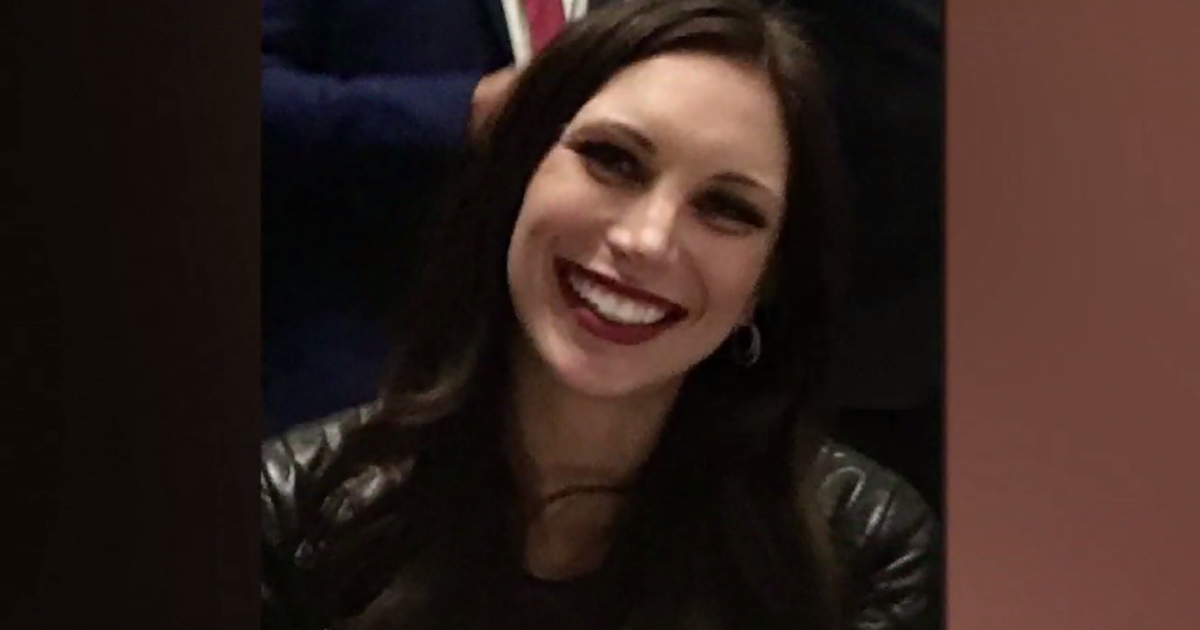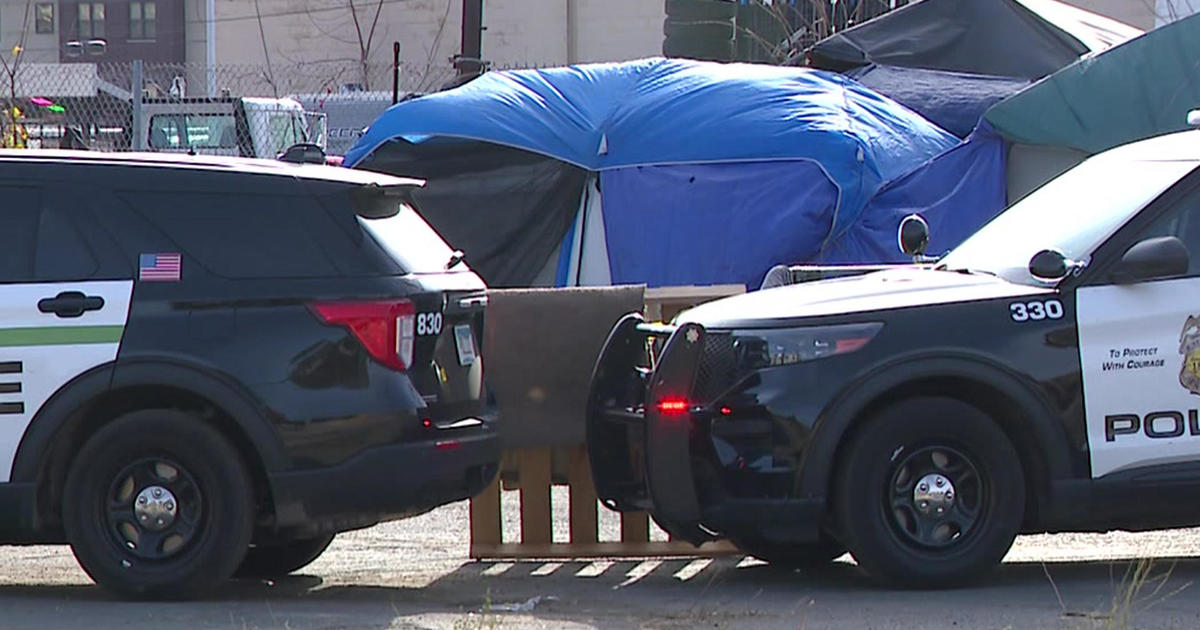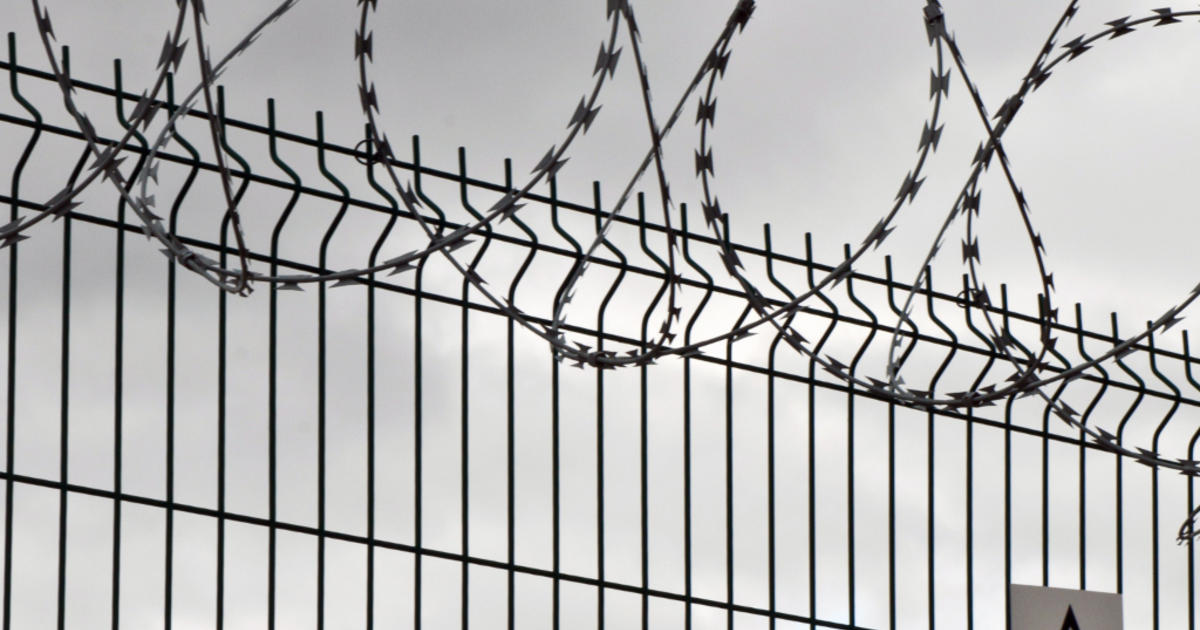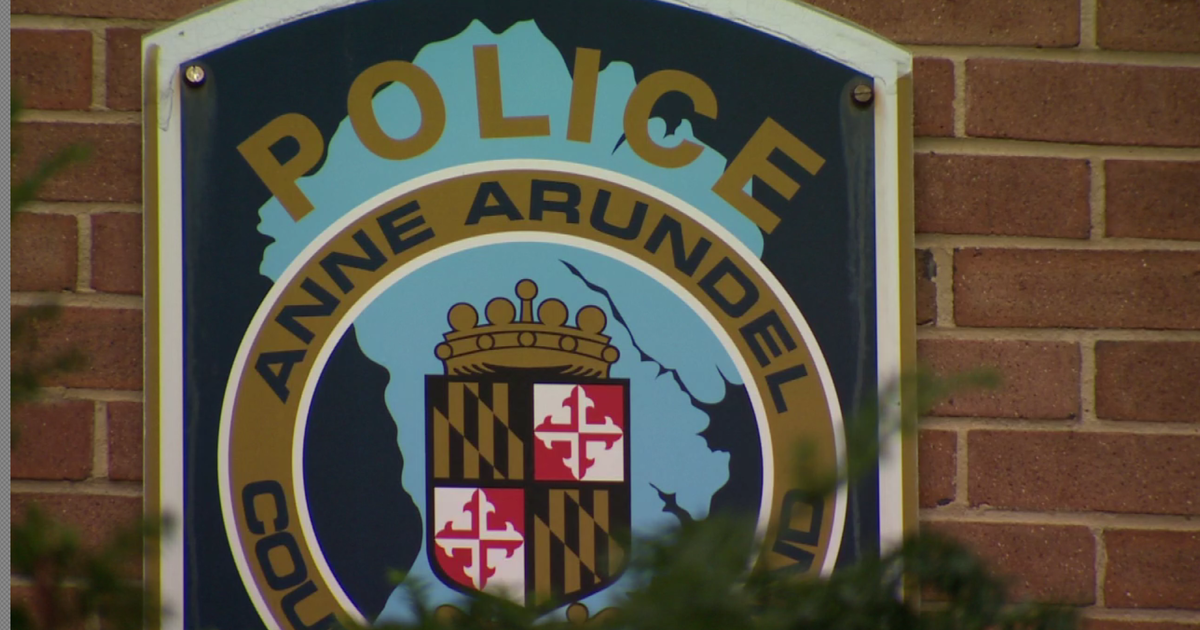Full Transcript Of Heinrich's Confession In Court Released
MINNEAPOLIS (WCCO) -- A full transcript has been released of Tuesday's court proceedings where Danny Heinrich confessed to the kidnap and murder of Jacob Wetterling, the sexually assault of Jared Scheirel and child pornography.
A nearly 27-year-old missing person case came to a close Tuesday when Heinrich confessed to the kidnapping and murder of Wetterling. He admitted abducting Wetterling near the boy's home in the central Minnesota community of St. Joseph on Oct. 22, 1989.
According to the court transcript, the proceedings began with the judge asking Heinrich how he was doing, which he responded "All right, your honor." Heinrich then changed his plea to guilty to receipt of child pornography in accordance to his plea agreement.
Heinrich was then placed under oath for the purpose of giving testimony. After being asked numerous questions about his background from the court, Heinrich and U.S. Attorney Steven Schleicher discussed the child pornography and Heinrich admits to downloading the illegal images on his computer, printing many of the images and making several binders of them.
The proceedings then turned to the Wetterling case. Here is that portion in full:
MR. SCHLEICHER: Sir, as part of the plea agreement, you understand that you're providing a factual accounting for what happened to Jacob Wetterling on October 22, 1989, is that right?
THE DEFENDANT: That's right.
MR. SCHLEICHER: On October 22, 1989, did you kidnap, sexually assault and murder Jacob Wetterling?
THE DEFENDANT: Yes, I did.
MR. SCHLEICHER: I need you to tell the Court what happened on that evening beginning around 8:00 p.m. in the city and town of St. Joseph, that area.
THE DEFENDANT: I was driving on a road, a dead-end road. I noticed three children on their bicycles with a flashlight. I pulled into a driveway, passed -- after they passed me, turned around and faced the direction of the road that they would be coming back on. Approximately 20 minutes or so later, they came back. I stepped out of my car. I put a mask on. I reached for my revolver. I proceeded onto the road. I confronted them. I told them to get into the ditch with their bicycles. They cooperated. They did. I asked their names,their ages.
MR. SCHLEICHER: Do you recall what their answers were?
THE DEFENDANT: Not right offhand, I don't, no.
MR. SCHLEICHER: Do you know now that the three children involved were Jacob Wetterling, Trevor Wetterling, Aaron Larson?
THE DEFENDANT: That's correct.
MR. SCHLEICHER: You indicated that you took out your revolver. Can you please describe the revolver? What caliber and type was it?
THE DEFENDANT: .38 Special, Smith & Wesson, snub
nose.MR. SCHLEICHER: After you confronted the children, what did you ask them to do?
THE DEFENDANT: I asked -- well, they offered me a tape, and I knocked that down. They tried to shine a flashlight in my face, and I said, No, don't do that.
MR. SCHLEICHER: The tape was a videotape?
THE DEFENDANT: Yes.
MR. SCHLEICHER: That they had rented?
THE DEFENDANT: Yes.
MR. SCHLEICHER: From the local store?
THE DEFENDANT: Yes.
MR. SCHLEICHER: Okay.
THE DEFENDANT: Yes. Yes.
MR. SCHLEICHER: After you knocked it down, what did you say to them?
THE DEFENDANT: I told Trevor and Aaron to run away, not look back or I would shoot, and I took Jacob back to my car.
MR. SCHLEICHER: What did you do when you took Jacob back to your car?
THE DEFENDANT: I handcuffed him and put him in the front passenger seat of my car.
MR. SCHLEICHER: Did you handcuff him behind his back?
THE DEFENDANT: Yes.
MR. SCHLEICHER: After you handcuffed him, did Jacob Wetterling say anything to you?
THE DEFENDANT: What did I do wrong?
MR. SCHLEICHER: Okay. What did you do after you placed him in your vehicle?
THE DEFENDANT: I got into the, into my car, and we drove out of town, out of St. Joe. On the way out of St. Joe, I had the scanner on. A lot of police activity started coming over the radio, so I decided I would head back to my home town of Paynesville.
MR. SCHLEICHER: Now, you said a scanner. Can you just briefly describe the scanner?
THE DEFENDANT: A Regency 50-channel scanner.
MR. SCHLEICHER: For the purpose of listening to –
THE DEFENDANT: Listening to police calls. That's correct.
MR. SCHLEICHER: Did you instruct Jacob Wetterling to do anything when you were driving –
THE DEFENDANT: I –
MR. SCHLEICHER: -- on that road?
THE DEFENDANT: On the way out of St. Joseph, I told him to duck down, lean forward in the seat. When we got out of St. Joe, I told him he could sit back up.
MR. SCHLEICHER: Did he make any statements to you at that time?
THE DEFENDANT: No. No, he did not.
MR. SCHLEICHER: Could you as best you can please describe the route that you took from the point of the, what would have been the Raisser farm, to the point you ended up?
THE DEFENDANT: Got back on the road that the boys were on. We headed not to Main Street, but back to, I don't know, Highway 75, whatever, that runs back to St. Cloud, that direction, but we headed west on that road. And I got on the interstate and headed north to Albany. From Albany, I got off the interstate and hit another country -- county road that went to Roscoe,
Minnesota, and then from Roscoe, I headed east or west on 23 to Paynesville.MR. SCHLEICHER: Okay. And where specifically in Paynesville did you go?
THE DEFENDANT: I went to that -- when I got to
Paynesville, before I got to Paynesville, I turned on the sewage pond road. About 100 yards up that road, there is an approach and -- to a field next to a grove of trees.MR. SCHLEICHER: And this area, is there also a gravel pit in the area?
THE DEFENDANT: There was then, yes.
MR. SCHLEICHER: This was an area with which you were familiar, is that right?
THE DEFENDANT: Yes, it is.
MR. SCHLEICHER: What happened when you pulled the vehicle into the area near the gravel pit?
THE DEFENDANT: I drove as close as I could to a grove of trees. I stopped the car. I got out. I opened the door for Jacob. I unhandcuffed him. I took him over to the edge of the grove of trees. I asked him to undress. I undressed. I touched his penis. He touched my penis. I had him masturbate. In about 20 or so minutes, about a half hour later, he said I'm cold, and I said, Okay. You can get dressed, and I got dressed.
MR. SCHLEICHER: Okay. I need to clarify a few things.
THE DEFENDANT: Sure.
MR. SCHLEICHER: With the touching, this was something you compelled him to do?
THE DEFENDANT: Yes.
MR. SCHLEICHER: He knew that you were armed, is that right?
THE DEFENDANT: That's right.
MR. SCHLEICHER: And in terms of any other sexual acts performed by you upon Mr. Wetterling --
THE DEFENDANT: No. No, there was not.
MR. SCHLEICHER: So there was no penetration?
THE DEFENDANT: No penetration.
MR. SCHLEICHER: And no forced oral --
THE DEFENDANT: No.
MR. SCHLEICHER: -- sex?
THE DEFENDANT: No, there was not.
MR. SCHLEICHER: All right. After you were finished, you indicated that Mr. Wetterling said something?
THE DEFENDANT: He said, I'm cold. So I said, Okay. You can get dressed, and I got dressed. On the way I said -- Are you taking me home? I said I can't take you all the way home. There is a lot -- you live a town or so away.
MR. SCHLEICHER: What was his reaction to that?
THE DEFENDANT: He started to cry. I said, Don't cry.
MR. SCHLEICHER: Now, before this point, sir, had you noticed any law enforcement in the area?
THE DEFENDANT: Yes. On the way back to the car, there was a patrol car that came down the road with no siren with its lights, and it headed east on Paynesville. I panicked. I pulled the revolver out of my pocket. It was never loaded until that point. I, I loaded it with two rounds. I told Jacob to turn around, I had to go to the bathroom. He didn't know what I was doing.
MR. SCHLEICHER: You told him that you had to go to the bathroom?
THE DEFENDANT: I had to go to the bathroom. I asked him to turn around.
MR. SCHLEICHER: Did he do so?
THE DEFENDANT: Yes, he did.
MR. SCHLEICHER: And then what happened?
THE DEFENDANT: I, I, I raised the revolver to his head. I turned my head. It clicked once because it didn't line up, the first chamber. I pulled, pulled the trigger again. It went off. I looked back. He was still standing. He hadn't fallen. I raised the revolver again and shot him again, and that's when he fell to the ground.
MR. SCHLEICHER: After Jacob Wetterling fell to the ground, at some point did you check and find that in fact he was dead?
THE DEFENDANT: Yes, he was. I did check.
MR. SCHLEICHER: Just for clarification, were you under the influence of any drugs or alcohol at the time of this?
THE DEFENDANT: No, I was not.
MR. SCHLEICHER: So you were sober, correct?
THE DEFENDANT: Yes.
MR. SCHLEICHER: Okay. And all of your actions that you took were voluntary of your own free will, is that right?
THE DEFENDANT: Yes.
MR. SCHLEICHER: All right. After you confirmed that Jacob Wetterling was dead, what did you do?
THE DEFENDANT: I left him, and I went home.
MR. SCHLEICHER: All right. Where specifically? What --
THE DEFENDANT: Back to 121 Washburn Avenue, the Plaza Apartments, downtown Paynesville.
MR. SCHLEICHER: How long did you remain at your home?
THE DEFENDANT: I -- couple hours or so.
MR. SCHLEICHER: After a couple of hours passed, did you return to the gravel pit area where Jacob Wetterling was lying?
THE DEFENDANT: Yes, I did.
MR. SCHLEICHER: What did you do?
THE DEFENDANT: I dragged him off about 100 yards off to the north of the site where I shot him.
MR. SCHLEICHER: What was your purpose in returning to the site?
THE DEFENDANT: To bury him.
MR. SCHLEICHER: And for what reason?
THE DEFENDANT: To hide the body.
MR. SCHLEICHER: Okay. And you said that you dragged Jacob Wetterling's body from the place where you shot him to about 100 yards off?
THE DEFENDANT: Yes.
MR. SCHLEICHER: Can you describe the area, please?
THE DEFENDANT: It would be to the north of the, of the -- where I shot him. 100 yards to the north, northwest -- northeast. Correction. I brought a shovel with me, but it wasn't big enough. So I figured, I remembered there was a construction company next door. So I thought I would go over there and see if I could find a shovel, or else it would have taken me hours to dig the grave with a little shovel. When I got over there, I noticed there was a Gehl or a Bobcat, and I'm familiar with operating one of those, and I remembered where they kept the key. I found the key, and I started it up. I drove back to -- I turned the lights on to find out where I had left him, and I found him, and I dug a grave with the Bobcat at that site.
MR. SCHLEICHER: Can you, as best you recall, tell us about what time that was that you would have --
THE DEFENDANT: It was after midnight.
MR. SCHLEICHER: And this was a fairly remote area, is that right?
THE DEFENDANT: Yes.
MR. SCHLEICHER: After you dug the grave with the Bobcat, what did you do?
THE DEFENDANT: I placed Jacob in the grave, and then I covered it back up with the Bobcat.
MR. SCHLEICHER: Okay. And was Jacob wearing all of his clothing at the time.
THE DEFENDANT: Yes, he was.
MR. SCHLEICHER: And can you describe what you recall clothing he was wearing?
THE DEFENDANT: His reflective vest, his red jacket, blue sweat pants. Tennis shoes came off when I put him into the grave, so I threw them -- I didn't bury them with him in the grave.
MR. SCHLEICHER: Okay. After you covered Jacob's body back up with the Bobcat, you returned the Bobcat to the construction site?
THE DEFENDANT: Yes, I did.
MR. SCHLEICHER: Did you then return to the site to make any effort to conceal what you did?
THE DEFENDANT: Yes, I did. I camouflaged the area with grass and brush. I -- oh, I should say I didn't return with my car. I walked back to the scene then.
MR. SCHLEICHER: You had walked back to the scene from your --
THE DEFENDANT: From my --
MR. SCHLEICHER: -- Paynesville --
THE DEFENDANT: From my apartment. That's correct.
MR. SCHLEICHER: All right. And then after you returned the Bobcat and camouflaged the site, did you walk back home?
THE DEFENDANT: I walked back home and threw his tennis shoes into a ravine about another 100 yards down the road.
MR. SCHLEICHER: What was your purpose in removing the shoes and throwing them --
THE DEFENDANT: I, I just noticed that I hadn't buried them with him so --
MR. SCHLEICHER: All right. And then you returned home?
THE DEFENDANT: That's correct.
MR. SCHLEICHER: Mr. Heinrich, at some point approximately a year later, did you return to the site where you had buried Jacob Wetterling's body?
THE DEFENDANT: Yes, I did.
MR. SCHLEICHER: Could you please describe what you saw when you drove by the site?
THE DEFENDANT: I didn't drive. I walked back again. I walked back. It was late at night again, probably around midnight, with a flashlight. I noticed -- I shined the area and noticed that the grave was partially uncovered. You could see his red jacket.
MR. SCHLEICHER: Above the ground?
THE DEFENDANT: Above the ground.
MR. SCHLEICHER: Did you see anything else in the area that caught your attention that would have been by the grave site? Vegetation or --
THE DEFENDANT: Nothing, none at that time -- well, yes, there was a tree growing in that -- excuse me. There was a small tree growing in that area or a bush. I don't know. A tree or a bush.
MR. SCHLEICHER: All right. Did that cause you concern, that you could see the jacket?
THE DEFENDANT: Yes, it did.
MR. SCHLEICHER: What did you do?
THE DEFENDANT: I, I, I can't remember. I had a bag with me, a garbage bag. I placed as many – his jacket, his bones, his skull into that bag to move. I figure I've got to move it.
MR. SCHLEICHER: You had a shovel with you?
THE DEFENDANT: I had an army entrenching tool with me.
MR. SCHLEICHER: So you dug up as many of the remains as you could gather?
THE DEFENDANT: I never dug any. It was already that uncovered.
MR. SCHLEICHER: Okay.
THE DEFENDANT: I never dug up anything. I gathered up as much as I could and put it into the bag and transported it across the highway there to his final resting spot.
MR. SCHLEICHER: All right. You walked over across the highway to a location of a rural farm in rural Paynesville, is that right?
THE DEFENDANT: That's correct.
MR. SCHLEICHER: Fairly close to the original place where you had buried Jacob Wetterling the year before?
THE DEFENDANT: That's correct.
MR. SCHLEICHER: What did you do when you transferred the remains to this farm property?
THE DEFENDANT: I found a spot. I dug a hole with the trenching tool about two feet deep. I took his jacket out of the bag. I can't remember what other clothing. Just the jacket I remember, and I put the bones in that hole and then his jacket on top and covered it up and left.
MR. SCHLEICHER: Obviously you were arrested sometime after the search warrant was executed at your Annandale residence. So it would have been about 25 years later. Wednesday, August 31, 2016, last week, you were transported in custody by law enforcement to the site where you had buried Jacob's remains for the second time, is that right?
THE DEFENDANT: That's correct.
MR. SCHLEICHER: And you were in custody the entire time, is that correct?
THE DEFENDANT: Yes.
MR. SCHLEICHER: Handcuffed?
THE DEFENDANT: Yes.
MR. SCHLEICHER: And secured. You showed law enforcement the location of that second grave site as best you were able, is that right?
THE DEFENDANT: That's correct.
MR. SCHLEICHER: And after you pointed out the location of the grave site, you were transported in custody away from the scene and were returned to jail, is that right?
THE DEFENDANT: That's correct.
MR. SCHLEICHER: And is it fair to say that you acted alone in the kidnap, sexual assault and murder of Jacob Wetterling?
THE DEFENDANT: That is correct.
The proceedings then turned to the abduction and sexual assault of Jared Scheirel in 1989. Heinrich confessed to grabbing Scheirel, throwing him into his car, sexually assaulting him and then leaving him on rural road without his pants or underwear. Heinrich said he kept those items as a souvenir.
Then, the judge and Heinrich discussed the remaining aspects of the plea agreement and Heinrich later verbally pleaded guilty to child pornography.
Sentencing for Heinrich is set for Monday, Nov. 21.
